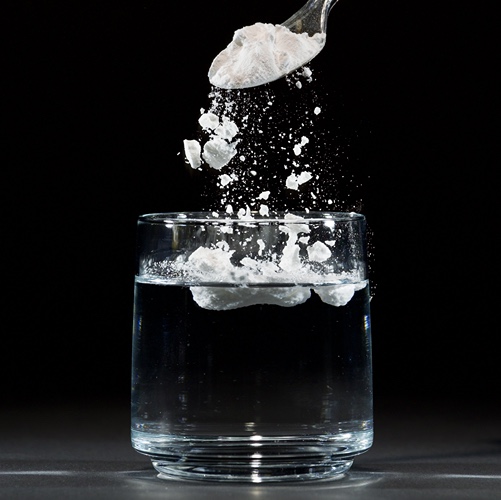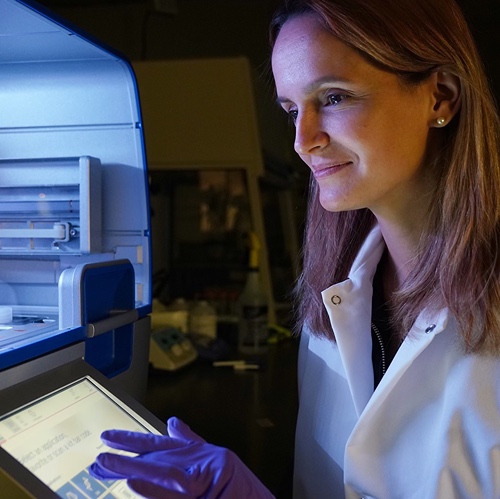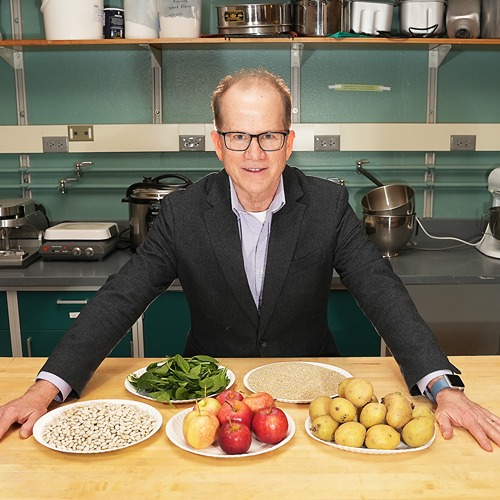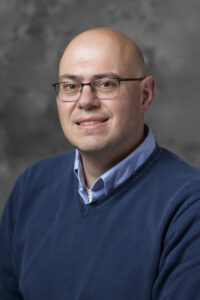Graduate Ag Research Spotlight Features Sarah Corwin
Sarah Corwin
“My research is at the intersection of food science and nutrition – creating new foods that impact health. We are translating science all the way to something that could impact lives.” —Sarah Corwin, Ph.D. candidate, Department of Food Science
THE STUDENT
Growing up in San Jose, California, Sarah Corwin did a lot of cooking, which sparked her interest in food but not in becoming a chef. Instead, she earned a BS in nutrition from Case Western Reserve University and completed a dietetic internship through Indiana University-Purdue University, Indianapolis, with a capstone in food service management. The registered dietitian then worked for an assisted living and skilled nursing facility in Indianapolis, before beginning doctoral work in 2016 under Bruce Hamaker, Distinguished Professor of Food Science and Roy L. Whistler Chair. Corwin says her work in clinical dietetics influenced not only her approach to her research but also her commitment to maintaining a healthy work-life balance. “If you don’t allow yourself to do the things important to mental and emotional health, you’re not going to be the most successful professionally,” she says.
THE RESEARCH
“My research is focused on which carbohydrates digest at different rates,” Corwin says. By studying different linkages between glucose molecules in the soluble carbohydrate structure to determine the rate at which each digests, Corwin found that certain linkages are slowly digestible. This is important because the speed of breakdown can impact blood sugar. A second part of her research asks questions about the applicability of this finding: “Is this carb going to affect health? Can we put it into food?” The work has implications for designing slow-digesting carbohydrates with health benefits to people with diabetes, for example. Based on her experience in a clinical setting, Corwin considers not just statistical data, but also clinical measures in evaluating how the carbohydrates she studies affect health. “Statistical results may not always be clinically relevant,” she explains. The project is funded by Nestle, with Hamaker and Lubbert Dijkhuizen, a professor at the University of Groningen, Netherlands, as co-PIs. Opportunities
Corwin cites the independence Hamaker gives her — “You’re driving your own research,” she says — and support from professors across the department as assets to her studies. “The department is a tight-knit community. If you need help, any professor with expertise in that area will help you.” Corwin is president of the Purdue chapter of Phi Tau Sigma, the honor society of food science and technology, which the national organization recently named Outstanding Chapter of the Year.
FUTURE PLANS
After completing her degree this summer, Corwin wants to continue doing research in the industry for “immediate, real-world impact.” An internship last summer with Pepsico cemented this goal. “I like being able to use my technical knowledge and expertise, being stimulated, and continuing to learn and grow,” she says. In her spare time this spring, Corwin has been sewing face masks in response to the Covid-19 pandemic. After learning about a local group organized by two West Lafayette residents from a Facebook post by State Representative (and group member) Chris Campbell. Corwin has since contributed to the group’s 40,000 completed masks.






